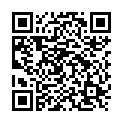|
|
|
| Module code: DFMEES-101 |
|
|
4VU (4 hours per week) |
|
4 |
| Semester: 1 |
| Mandatory course: yes |
Language of instruction:
German |
Assessment:
Written exam (50%) and tests (50%)
Written exam 90 min.
[updated 08.08.2024]
|
DFMEES-101 (P610-0126) Electrical Engineering - Renewable Energy and System Technology, Master, ASPO 01.10.2019
, semester 1, mandatory course
DFI-101 (P610-0274) Computer Science, Master, ASPO 01.10.2018
, semester 1, mandatory course
DFMME-101 (P610-0435) Mechanical Engineering, Master, ASPO 01.10.2024
, semester 1, mandatory course
|
60 class hours (= 45 clock hours) over a 15-week period.
The total student study time is 120 hours (equivalent to 4 ECTS credits).
There are therefore 75 hours available for class preparation and follow-up work and exam preparation.
|
Recommended prerequisites (modules):
None.
|
Recommended as prerequisite for:
DFMEES-201 German 2
[updated 28.03.2024]
|
Module coordinator:
Dr. Julia Frisch |
Lecturer:
Dozierende des Studiengangs
[updated 28.03.2024]
|
Learning outcomes:
The module is based on level C1 of the CEFR.
After successfully completing this module, students will:
be able to understand the content of longer, demanding texts on current topics as well as engineering presentations within and outside their subject area and grasp implicit meanings.
have acquired the productive and receptive language skills required for communication in their studies and everyday life.
be able to express themselves in a clear, structured and logically comprehensible manner on current topics from science and society, write a comprehensive written paper on topics from their field of interest or specialization and give a comprehensible lecture/presentation.
be able to apply the central rules of grammar at C1 level.
will be able to implement strategies for autonomous learning in order to make their own learning process more effective and improve their own learning ability.
[updated 08.08.2024]
|
Module content:
In this module, students will develop their knowledge of German as a foreign language at an advanced written language level, taking into account subject-related and intercultural aspects.
Based on reading, audio and video examples on current topics of general social and subject-specific interest and with the help of selected exercises on vocabulary and grammar, students will learn strategies that will enable them to communicate confidently and fluently in the resp. foreign language.
After successfully completing this module, students will:
have become familiar with different types of texts and writing styles,
have practiced analyzing, summarizing and critically commenting on complex issues.
have acquired the ability to explain points of view in writing and orally, to grasp nuances of meaning and to deepen the accuracy of expression
have learned selected grammatical structures such as prepositional phrases, participial constructions, noun-verb-conjunctions, passive and passive substitutes, nominalization-verbalization, connectors, modal particles and genitive attributes.
[updated 08.08.2024]
|
Teaching methods/Media:
The learning content is developed in a communicative and action-oriented manner with targeted listening, reading and speaking exercises in individual, partner and group work.
Students will review and deepen selected aspects of grammar in self-study with given (online) materials (on Moodle).
Multimedia-supported teaching and learning material, also online
[updated 08.08.2024]
|
Recommended or required reading:
Recommended literature and working materials will be announced and made available during the course.
[updated 08.08.2024]
|

